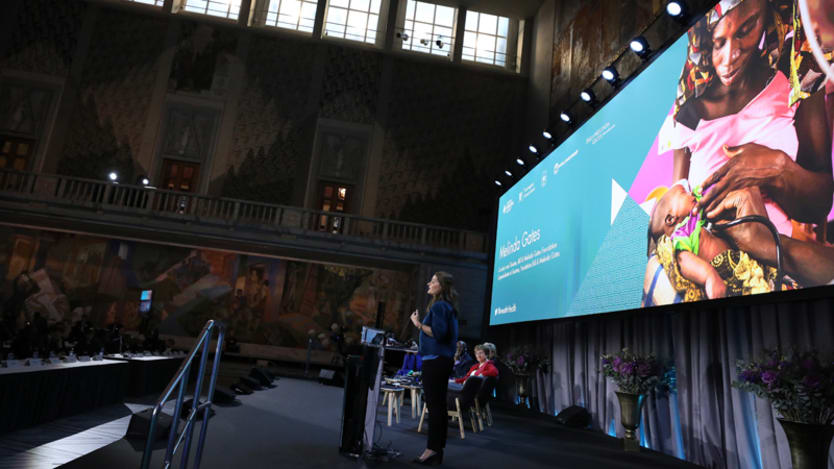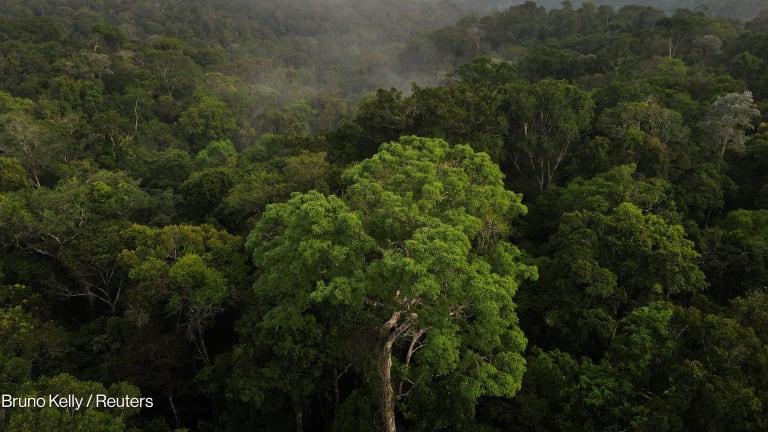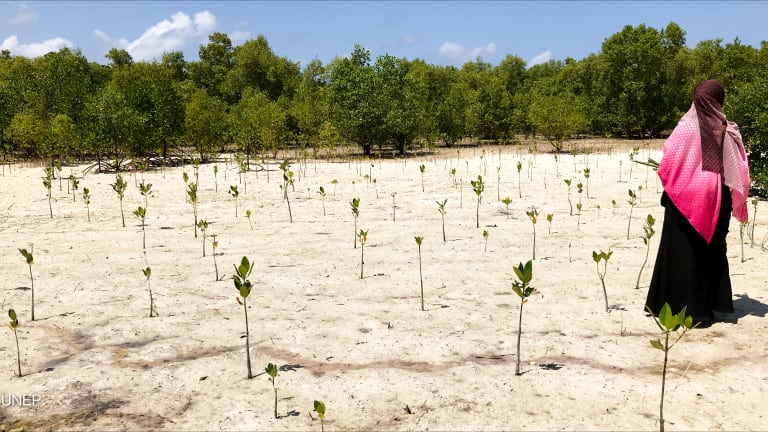
LONDON — Donors have agreed to put an additional $1 billion into the Global Financing Facility to improve health and nutrition for women, children, and adolescent girls in low-income countries.
However, the sum raised at a replenishment conference in Norway on Tuesday fell far short of the $2 billion target. There were also concerns that the facility could fragment the crowded international health space and push some countries further into debt distress.
Donors said the new commitments represented an “important milestone” for the facility’s fundraising target for the next five years. “We are so pleased with the genuine commitments that have been made … Today, we are on the cusp of making transformative change in global health where no woman, child, or adolescent will be left behind,” GFF Director Dr. Mariam Claeson told reporters.
More on GFF:
► GFF report shows promising maternal and child health results
► Video: Investor appetite for social impact contributions
► A look at the Global Financing Facility's goals, strategies, and learnings
The facility was launched in 2015 with the aim of using relatively small amounts of grant funding to catalyze greater domestic public and private investment in maternal and child health and nutrition. GFF does this mainly by helping countries develop an investment case for the work and by creating efficiency gains within public systems.
Its first annual report, released in July, showed promising early results and the facility now wants $2 billion to expand its work into 50 countries and make progress toward the Sustainable Development Goals.
Just over half of that sum was announced during the fundraising event, although GFF said it is expecting additional pledges from new and existing donors.
“If we are going to meet the SDGs, we need to be making these investments now,” Melinda Gates said during a press conference. The Bill & Melinda Gates Foundation is one of GFF’s biggest funders and announced a $200 million contribution at the start of the replenishment process last year.
The government of Norway, which hosted the conference in Oslo, was the biggest single donor, putting up $360 million. Contributions were also made by Denmark, the European Commission, Germany, Japan, the United Kingdom, Canada, and Qatar, as well as MSD for Mothers and Laerdal Global Health.
GFF also links to funding from the International Development Association and International Bank for Reconstruction and Development, so that for every $1 spent from the GFF trust fund, nearly $7 of World Bank money is put in. World Bank chief Kristalina Georgieva confirmed her institution would “match” the replenishment figure by linking it to $7.5 billion from its two lending arms.
Significantly, two low-income countries — Burkina Faso and Côte d'Ivoire — also made contributions of $1 million and $1.5 million respectively to the GFF trust fund, while also committing to increase their health budgets, which Georgieva described as a clear “vote of confidence” in the facility.
Burkina Faso President Roch Marc Christian Kaboré said in a statement: “The GFF is about country ownership — working with countries to set priorities and drive domestic resource mobilization ... It makes the most compelling case for why countries must lead and put their own money on the table, and it reinforces the prioritization of resource allocation for basic social sectors, particularly the health sector.”
Yet there were some notable absences from the list of donors, including Sweden, a major donor to maternal and child health. The country has long held concerns that GFF could increase fragmentation in the international health system. Sweden’s global health ambassador was recently reported saying the country would not contribute to GFF because “we have a health architecture that is already very crowded.”
Asked about this during the press conference, Norway’s Prime Minister Erna Solberg defended the mechanism, which she said makes health financing “easier.” Georgieva described GFF as “one of the most efficient platforms we currently have in the world,” with a lean staff of 26 housed within the World Bank as a trust fund.
A bank spokesperson told Devex that while Sweden is not a GFF donor, the country has provided funding toward GFF’s work in Uganda.
Representatives were also questioned about concerns that GFF could add to countries’ debt burdens by encouraging them to borrow more for health.
In response, Georgieva said the bank will offer countries grants or “a very high degree of concessionality in financing” where needed. However, the aim through GFF is to encourage countries to “take a long-term view of how to use domestic resources and prioritize tax revenues … so their need to borrow goes down and not up,” she said. Bank representatives also pointed to efficiency savings created by GFF.
Civil society groups welcomed the replenishment while calling for reforms. Talking about the European Commission’s $30 million pledge, Alva Finn, senior advocacy adviser at Save the Children International, said it “shows real commitment from the EU to creating sustainable financing for women, children, and adolescents in areas where it matters,” but said GFF needs to work more with countries on “pro-poor tax reform.”








